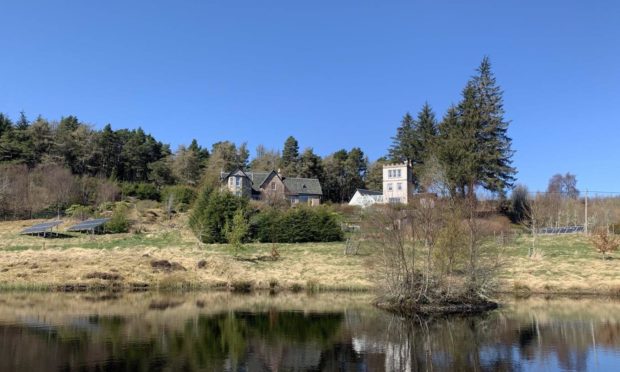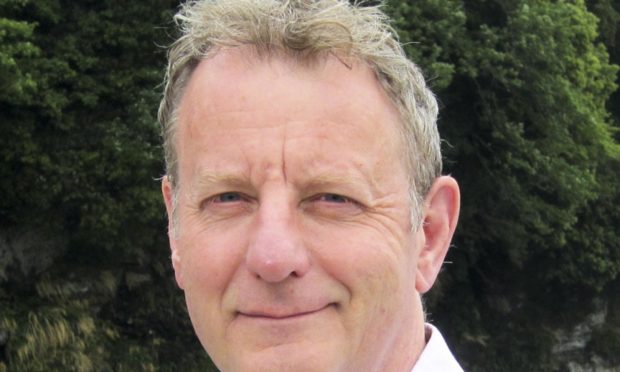Neighbours of a Highland estate have raised concerns about plans to convert a rundown barn into a base for rangers.
The 1,262-acre Bunloit Estate near Loch Ness is recruiting its first rangers since being bought last year by Jeremy Leggett, a solar energy entrepreneur and former scientific director at Greenpeace.
It has applied to Highland Council for planning permission to convert the barn into a “shelter and meeting place” which would be used year-round by the rangers and visiting scientists.
It is also envisaged it would be used by a small number of public visitors and school groups on a seasonal basis.
The farm buildings conversion is the first plan submitted since the estate was bought by Mr Leggett who has wider plans for re-wilding alongside building affordable houses and eco workshops.
Increased traffic concerns
It has attracted objections from Glen Urquhart Community Council as well as four local households. They include concerns about increased traffic on the Bunloit Hill access road.
The application shows the estate plans to stop the existing rentals of two farm cottages from 2022 to general tourists in favour of eco-tourists who will be given expert guided tours.
Visitor numbers will be limited to 20 per day and it is estimated up to six scientists will work on research projects on the estate at any one time. Local secondary school pupils have also been offered access for outdoor biology classes.
The estate said in line with its policy of reducing carbon emissions, vehicle access will be discouraged and most visitors and users will arrive by foot.
But Dianne Fraser, chair of Glen Urquhart Community Council, said: “Whilst the Glen Urquhart community welcome investment in their community, and are interested in the project proposed by Jeremy Leggett, the community remain concerned about infrastructure required to support such a development in this hinterland location.
“The Bunloit road is a steep, single-track road, with poor sight lines, and currently in poor repair in areas. The road is part of the Great Glen Way and is shared with walkers, cyclists, and horses. The road is not suitable for heavy goods traffic.
“Water and waste water are also an ongoing challenge in Bunloit. The community council would like to see appropriate solutions to these issues before they can fully support this development.”
Other objectors have highlighted safety concerns about increased traffic on the road, which is used by locals and visitors heading to attractions, holiday homes and the Great Glen Way.
‘Model in land management’ vision
Mr Leggett said the impact of the barn conversion on traffic would be “minimal”. “The specialist eco-tourists will cancel out the existing crop of general cottage renters.
“One can think of the rangers as cancelling out contractors we would have to hire anyway for estate upkeep if we didn’t offer people full-time employment. Similarly, visiting scientists should not be much more numerous than the visitors that a ‘normal’ owner might have, in terms of socialising.”
The estate is consulting on its wider vision to create a model in land management, boosting biodiversity, carbon sequestration and job creation.
If successful, 16 houses, half of them affordable homes, and seven workshops could be completed by the summer of 2023. A wood school would create four jobs and 15-20 apprenticeships annually.
Mr Leggett said it wants to be “people and community-centric” and make a contribution to the Covid recovery.
“We aim to be a place Scotland, and (most in) Glen Urquhart, can be very proud of. A barn conversion adding toilets, store cupboards, and a small meeting room for refreshments is a pretty vital first step.”

